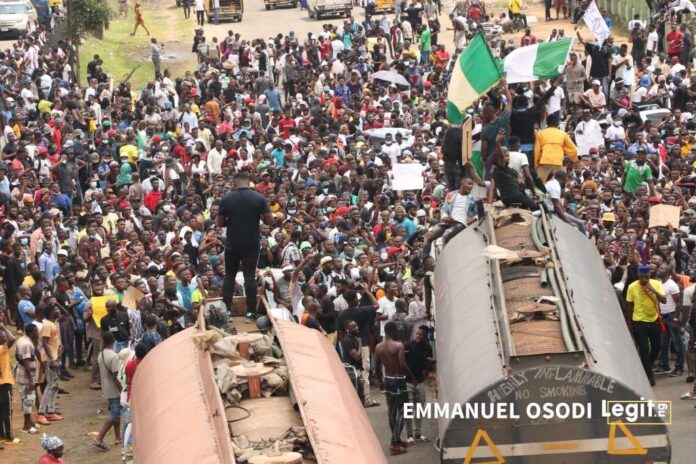By Ishaya Ibrahim, News Editor
For the discerning young Nigerians on the street protesting in the last eight days, the Special Anti Robbery Squad (SARS) has only worsened Nigeria’s security situation than make it better.
To be clear, at 60, Nigeria has become more insecure than at any other time in its history, back to Amalgamation in 1914.
In the North East, Boko Haram has come to stay. The terrorists have held the region captive for almost a decade.
Fulani herdsmen and bandits are holding sway in the North West, killing victims as they so desire. It’s a state of chaos.
In the South, it is kidnappers that rule the highway, seeking for who to kidnap and how much bounty they will make per kidnap head.
More troubling in the South are the activities of SARS operatives who terrorize citizens, extort them and sometimes murder them.
Nigeria, therefore, presents a bleak security outlook to the extent of being classified in the same sphere as terror-stricken Afghanistan and Iraq.
In the latest report of the Global Terrorism Index, Nigeria is the third most terrorised country in the globe. Syria fared better in that ranking.
But insecurity has always been a concern since independence. The difference here is that it has never been at this scale where the country’s military is involved in 30 of the 36 states doing internal security duties, according to an August 4, 2016 report by PREMIUM TIMES. The number may even be higher today.
In the 60s, military coups were the fears at the time, culminating into a Civil War between Nigeria and Biafra. That war of secession which lasted between 1967-1970, ended in a one Nigeria, but with divided loyalties to ethnic and religious groups.
But even during the coups, according to Max Siollun in his book Oil, Politics and Violence: Nigeria’s Military Coup Culture 1966 – 1976, the Special Branch, the Intelligence department of the Nigeria Police Force, had, in many cases, got advance knowledge of the making of such coups, especially those of Major Chukwuma Nzeogwu, and the mutiny against the government of Major General Aguiyi Ironsi. So, our security performance had always not been that lacklustre.
In the 70s,80s and 90s, highway robberies were the sort of crime that often plagued the country. The firing squad was the fate of those convicted of the crime. The idea was that violence should be marched with violence. But that never stamped out the menace of armed robberies. It, however, increased the attacks and the tenacity of the robbers to escape arrest.
SARS was created during this period to tackle armed robberies.
SARS later deviated from that primary role of fighting armed robbery to checking phones of citizens if they were internet fraudsters, and labelling anybody who refused to be extorted an armed robber.
During this period also, the Special Branch had already become an independent entity. It was first called National Security Organisation, NSO, and later State Security Service, SSS.
With the removal of the Special Branch from the police, the regular Police Station became bereft of intelligence advantage to confront security threats, especially armed robbery. It, therefore, lost the ability to become proactive.
Security consultant and former police commissioner, Frank Odita, linked the removal of the Special Branch from the police with the worsening of Nigeria’s security situation.
“During our days, the police had Special Branch in every division. You find them in every division because they were members of the Police Force. They go out for their information, come back and feed the DPO who takes proactive action. After an action taken, then the commissioner of police will be informed. That is why people are saying policemen in the past are always there, but now, they are no longer there,” he said.
Odita says this style of reactive policing where the police station has no intelligence power and is reliant on the DSS is not working.
“Now DSS is carrying out an arrest. It is not known anywhere. Have you ever heard where they say the MI5 or the CIA carry out arrest? No. They don’t. They give information to the uniform men who will go and carry out arrest because the moment you begin to know that those who carry out the covert operation are also security men, then they are endangered,” he said.














